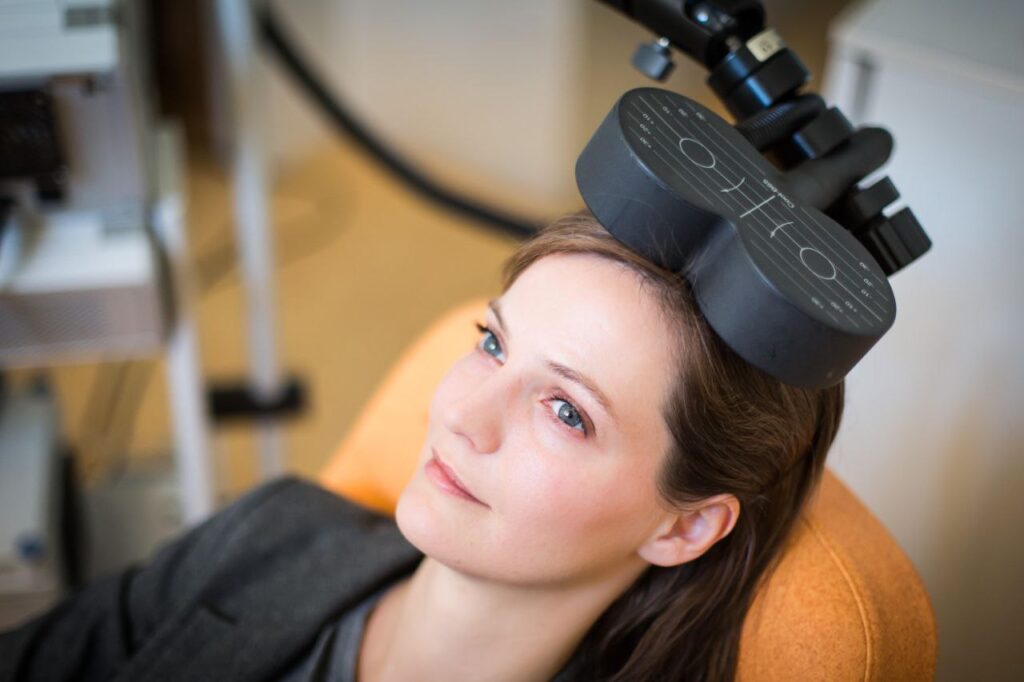What you need to know about rTMS treatment?
What is rTMS treatment? What does a TMS device consist of? In what cases is this treatment used? We will answer all these questions in this article and provide you with all the information you need to know about rTMS treatment and its side effects.
What is repetitive Transcranial Magnetic Stimulation (rTMS)?
Repetitive Transcranial Magnetic Stimulation is a safe technique that doesn’t require any surgical intervention.
It is used to treat depression and certain other neurological and psychiatric disorders when other medications are ineffective.
This technique is specialized, safe, and FDA approved. It is used to simulate the brain and assist in enhancing its neural cells because it relies on electromagnetic induction to stimulate the brain.
What does the TMS device consist of?
The rTMS device is composed of one or two copper coils placed on a targeted external area of the patient’s scalp to generate electromagnetic pulses.
This aims to stimulate neural brain cells and modify undesirable neural activity within the brain. The device is safe, well-tolerated, with few side effects.
Its use extends beyond modifying neural cells and is also used to alter activity in the entire neural network affected by a specific disorder or prevent the activation of neural cells.
Cases which rTMS treatment is used:
The U.S. Food and Drug Administration has approved the use of rTMS treatment for treating depression.
Additionally, it is used in the treatment of the following conditions when other medications and treatments are ineffective.
– Obsessive-Compulsive Disorder (OCD).
-Post-Traumatic Stress Disorder (PTSD).
– Generalized Anxiety Disorder (GAD).
– Migraines.
– Enhancing communication abilities in Autism Spectrum Disorder patients.
– Schizophrenia.
– Cognitive and memory impairments.
– Auditory hallucinations in Schizoaffective Disorder.
– Alcohol and nicotine addiction.
– Bipolar Disorder.
– Pain resulting from infections and neurological diseases.
rTMS treatment is used to improve depressive symptoms, eliminate suicidal thoughts, restore a sense of life’s significance, enhance mood, facilitate social performance, and help individuals overcome social Isolation.
When does the effect of magnetic stimulation begin?
The consultant neuro psychiatrist requests patients to send him weekly reports to assess their progress during the treatment.
Through these reports, it has been observed that the response varies among patients, differing from one case to another
Some patients respond to the treatment and notice improvement within the first week.
However, this does not imply that all patients experience this improvement from the first week.
Others may start responding and feeling better towards the end of the treatment.
Thus, as mentioned, the response varies among patients.
Therapeutic sessions continue for several weeks, and the duration varies based on the patient’s response to the treatment. Each session lasts from 20 to 50 minutes.
Side Effects of rTMS Treatment:
According to Dr. Ahmed Missiry, there are some side effects of rTMS treatment.
Some are common, improving shortly after the session, while others are uncommon but serious.
Common side effects:
-Headache and head pain.
– Dizziness.
-Tingling or muscle spasms in the facial muscles.
-Scalp pain, especially in the area exposed to magnetic stimulation.
Uncommon side effects:
– Seizures.
– Mania, especially in patients with bipolar disorder.
– Hearing loss if ear protection is not adequately used during magnetic stimulation sessions.
In conclusion, it is important to know that rTMS treatment may not be suitable for all patients.
Therefore, evaluation by a mental health professional is necessary before scheduling a session to ensure the safety and suitability of the procedure for the patients.
References:

